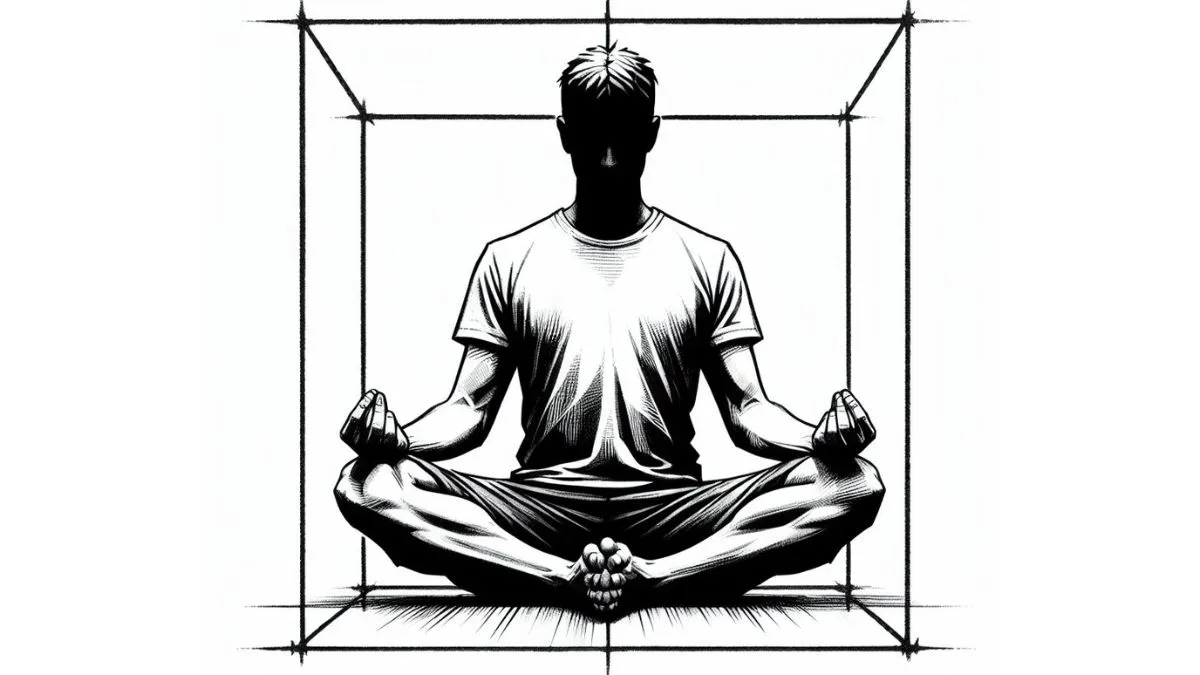Introduction
As our lives continue to unfold and the demands of the world increase, it becomes increasingly difficult to maintain a balanced and fulfilling perspective. This is where meditation and self-reflection come in—two techniques that can help us focus on the present moment and keep our minds in the right place. In this article, we’ll discuss the psychology of self-awareness, how to develop it with meditation, and the top 5 benefits of self-reflection. Hopefully, this will help you find the mindfulness and perspective you need to thrive in the coming years!
What is the Psychology of Self-Awareness?
At first, self-awareness looks like a vague word. Everyone is always self-aware as we think with our brains and sense and act with our organs. Without being aware, these things are impossible. However, if we really think about it, we realize it is not the same as being consciously active or being alive. A person who is truly aware will not doubt their actions and neither will carry any guilt—and not like a psychopath, but like a wise soul. Self-awareness comes from the understanding of one’s body and emotions, and its relationship with the world. Also, it requires some level of intelligence and knowledge of science and philosophy.
In conclusion, awareness enables to understand one’s roles and responsibilities. Also, it makes a person empathetic, wise, and productive. It leads to a civilized individual who acts for the benefit of all life and whose actions always leave a positive impact on the world.
Some benefits of developing self-awareness include:
- Increased confidence
- Improved ability to think critically
- Improved communication
- Increased sense of self-efficacy
- Greater ability to manage stress
Although one can achieve it in uncountable ways, we will discuss two major methods to be an expert at it.
1. Meditation

Meditation helps you focus on the present moment. When you meditate, you become more aware of your thoughts and feelings by focusing only on your breath or another focal point. By focusing on one thing, you reduce the risk of rumination—a habit that can lead to negative thoughts and feelings. Besides reducing stress levels, meditation also helps improve cognitive function and makes it easier for people to control their emotions.
Also, meditation can help you develop a better understanding of yourself by focusing on your thoughts and feelings. This can help you better cope with difficult situations and build self-confidence. As you practice meditation regularly, you will learn to be more comfortable in your skin and achieve a sense of tranquility and inner peace. This will help you develop self-awareness and thrive in your life.
In fact, self-awareness is the foundation of mindfulness, a practice that has been proven to improve mental well-being. When you practice mindfulness, you become more aware of your thoughts, feelings, and behaviors and can manage them better. As you develop self-awareness, you can live a happier and healthier life.
How to Meditate?
There is no one-size-fits all answer to this question. However, there are several simple ways in which you can begin practising mindfulness meditation. One option is to find an app or program that offers guided meditation exercises. Another tactic is to practice at home with some basic techniques and music by your side. In addition, you could attend mindfulness classes for more in-depth instruction on the art of it.
Note: To develop self-awareness is the key to a happy and fulfilling life, and meditation and self-reflection can help you achieve this by helping you focus, de-stress, and improve your mental well-being. However, meditation is difficult. Be sure to practice regularly for the best results. When you’re ready, share your progress with friends and family members to inspire them. There are many meditation techniques, so find the one that’s most comfortable for you. At last, meditation is a practice that can help you focus, de-stress, and improve your mental well-being. So don’t be afraid and give it a shot? It might pleasantly surprise you with the benefits!
How does self-reflection help in achieving self-awareness?

Self-reflection is the process of introspection and reflection on your thoughts, feelings, and behaviors. When you focus on your innermost thoughts and experiences, you can gain a better understanding of yourself. This leads to better decision-making and improved outcomes in all aspects of our lives. It will enable you to manage emotions effectively and develop healthy coping mechanisms. Also, when you are constantly aware of your own thoughts and feelings, it becomes easier for you to stay focused on the tasks at hand. With regular practice of self-reflection techniques like journaling, you can develop this important trait and achieve your goals.
The Top 5 Best Practices for Self-Reflection
1. Meditation

Meditate regularly to develop better mental health. It’s difficult to find the time to practice mindfulness, but the benefits are immeasurable. The practice of mindfulness can help you reflect on your past, learn from it, and move on. Here is a guide if you want to start today.
2. Journaling

The benefits of mindfulness continue after you finish meditation—be sure to journal about what you learned! In fact, journaling is one of the best ways for self-reflection. When you write about your feelings or even your daily activities, it gives you the time to ponder over your actions patiently and know the reasons and motivations behind them.
3. Reading

Another useful technique for practicing self-reflection is reading fictional stories with a spiritual background. Philosophical and psychological stories raise questions in mind and create scenarios that test your character. In a story, it is easy to find yourself in a character and view your emotions and motivations from a third-person perspective. However, remember that movies are not the same. Although you may find a relatable character that could make you laugh and cry, you will not have sufficient time to process and reflect on the deeper aspects. Here’s an article on how reading helps in spiritual growth.
4. Healthy Eating

Practice mindful eating practices to improve your diet and overall health. Self-reflection is a process that needs a calm mind. If your body is suffering and your emotions are swinging like monkeys from a branch, you cannot focus on anything, let alone self-reflect unbiased and with wisdom. In conclusion, a healthy body leads to a healthy mind.
5. Improving Brain Functions

At Last try to nurture your brain. You should never let your intelligence dim down to a level where, even after doing all the hard work, you don’t reap any rewards just because you can not think. A foolish mind cannot achieve anything, even if it sits in mediation for a lifetime. So, don’t forget to exercise your brain; try memory building, thinking, and aptitude exercises. If you are sharp and have an excellent memory, your mind can achieve the former four points without even trying.
How can meditation and self-reflection help you thrive?
The practice of meditation and self-reflection has several benefits for the mind and body. First, it is important to find an activity or mindset that resonates with you. Once you have found something that works for you, practice regularly to get the most out of the practice. The benefits of meditation and self-reflection are cumulative, so the more you do, the better the results.
Thriving is all about being in the moment and mindfulness. Meditation and self-reflection can help you achieve this by increasing your focus and productivity, as well as your resilience to change. They can help you manage stress, anxiety, and depression and develop self-awareness, which will also equip you with the skills to make better decisions that will improve your life. So, whether you’re looking to de-stress or just stay on top of your mental health, meditation and self-reflection may be the answer. Try it and see for yourself!


